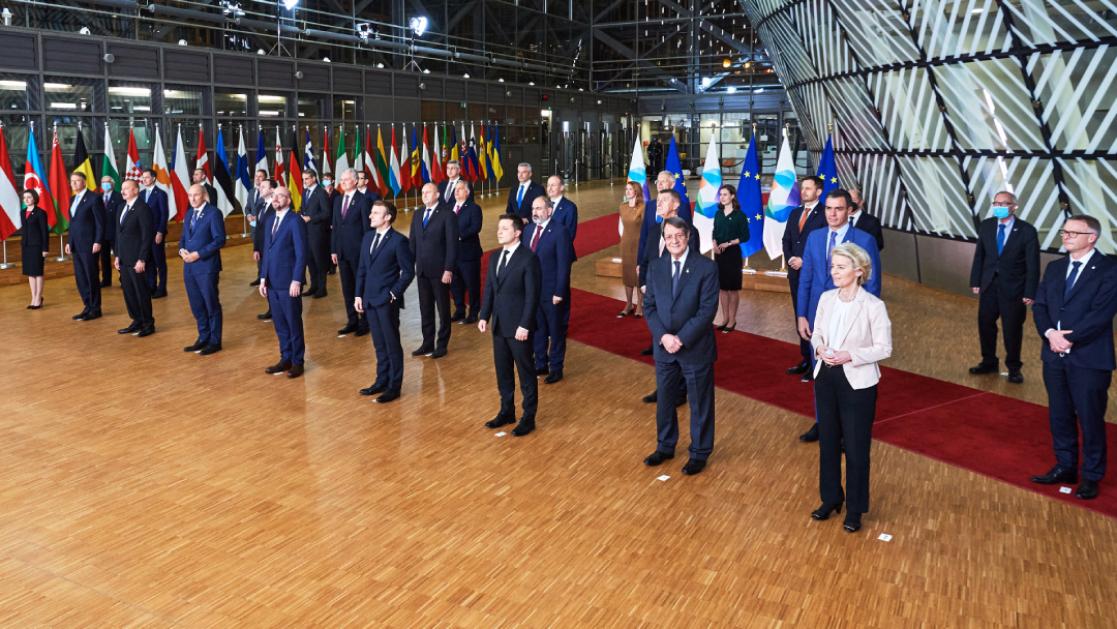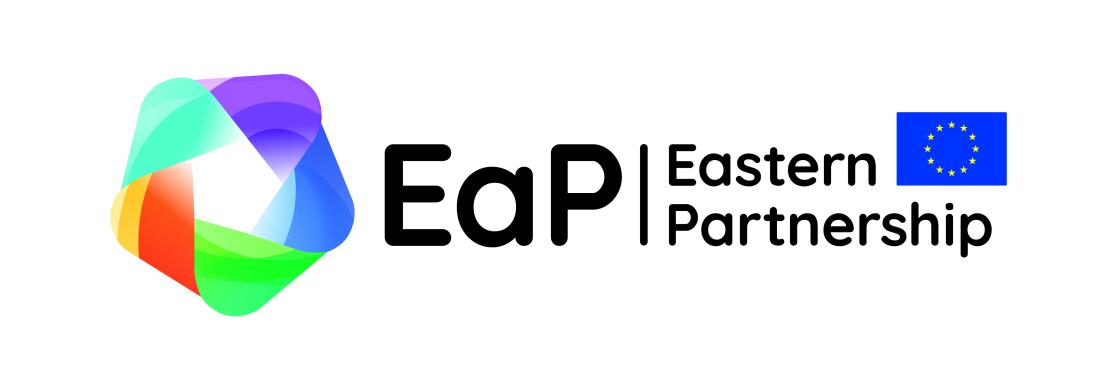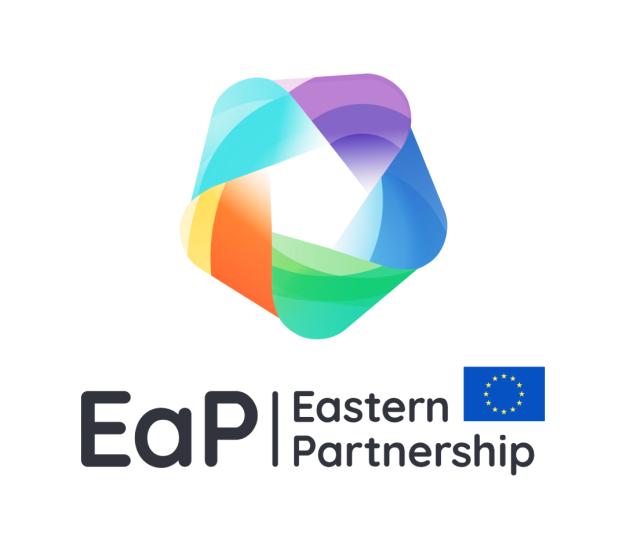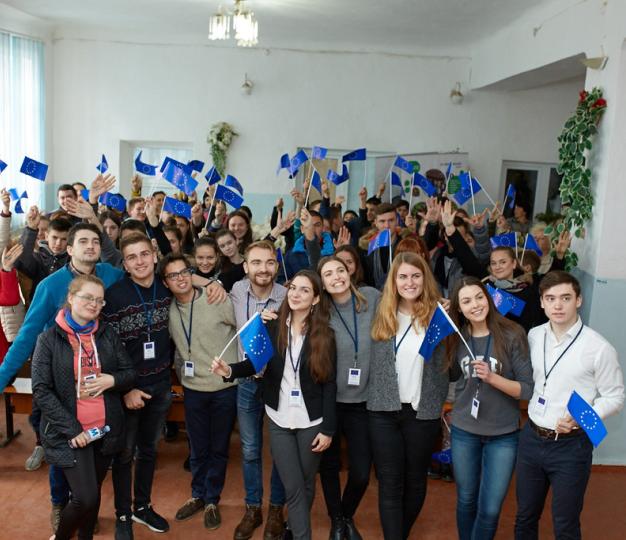Eastern Partnership
The Eastern Partnership (EaP) is a joint initiative involving the EU, its Member States and five Eastern European Partner countries: Armenia, Azerbaijan, Georgia, the Republic of Moldova and Ukraine. Learn more about the EaP on this page.
Navigate the topic
About the Eastern Partnership
Launched in 2009, the Eastern Partnership (EaP) has been instrumental in bringing interested partner countries closer to the EU. Our cooperation is based on shared fundamental values of democracy, rule of law and respect for human rights.
To-date, the Eastern Partnership continues to deliver many visible and tangible benefits to the people of Armenia, Azerbaijan, Georgia, Moldova and Ukraine, as well as to the EU. It has set Ukraine and Moldova on their European paths and guides relations and regional cooperation with partner countries.
The EaP provides a unique format of cooperation that strengthens links between governments, regions, civil society, businesses, universities and people.
Through its Economic and Investment Plan and the Global Gateway, the EaP has boosted economic development, facilitated trade, strengthened connectivity and economic integration. It has promoted democratic values, provided support to civil society and enhanced people-to-people contacts through cultural exchange and mobility programmes. In the current complex geopolitical situation, the EaP’s flexible and tailored format of cooperation remains a vital tool for strengthening the resilience of partner countries.
Stronger Together: Cooperation between 2009-2024
The Eastern Partnership was developed as the Eastern dimension of the European Neighbourhood Policy, combining bilateral and multilateral tracks of engagement. The EaP is a joint initiative involving the EU, its Member States and five Eastern European Partner countries: Armenia, Azerbaijan, Georgia, the Republic of Moldova and Ukraine.
Belarus suspended its participation in 2021, following the drastic deterioration of the overall human rights, democracy and rule of law situation in Belarus in the run up, conduct and aftermath of the August 2020 elections. Cooperation continues with key non-state Belarusian stakeholders, including civil society organisations and the democratic forces for a democratic Belarus.
Launched in 2009, the EaP is a strategic and ambitious partnership based on common values, mutual interests and commitments, as well as shared ownership and responsibility. It aims to strengthen and deepen the political and economic relations between the EU, its Member States and the partner countries, as well as support sustainable reform processes in countries of Eastern Partnership.
Based on the principles of conditionality and incentive-based approach, it has successfully complemented the bilateral engagement and reinforced the speed of the implementation of reforms with deeper sectoral cooperation and exchange between the partner countries in key areas such as the rule of law, the fight against corruption, economic development, people-to-people contacts and connectivity.
The Eastern Partnership contributes to the overall goal of building resilience through developing tailored partnerships with the EU’s neighbours in coordination and synergy with other strategies and frameworks, such as the Global Gateway, the Strategic Compass, the European Union Maritime Security Strategy, the new strategic approach to the Black Sea and the EU-Central Asia Strategy. It supports the delivery of many global policy objectives, including the Paris Agreement on Climate Change and the UN 2030 Agenda and its Sustainable Development goals. It is fully aligned with the EU’s Strategic Agenda 2024-2029.
Over the years, the EaP has been instrumental in bringing the EU and interested partner countries closer together and continues to deliver many visible and tangible benefits to the people of Armenia, Azerbaijan, Belarus, Georgia, Moldova and Ukraine, as well as to the EU. It has set Ukraine, Moldova and Georgia (should the country revert to the EU path and adopt democratic, comprehensible and sustainable reforms) on their European paths and political and economic bilateral agreements now guide relations and cooperation with most partner countries.
The unique format of cooperation at regional level strengthens links between governments, regions, civil society, businesses, universities and ordinary people. These include representatives of national governments, national parliaments through EURONEST, local and regional public authorities through CORLEAP, Council of Europe, International Financial Institutions, OSCE, civil society organisations through the EaP Civil Society Forum, the Young European Ambassadors and business representatives.
At regional level, the Fifth EaP Summit in November 2017 marked the adoption of a common reform agenda titled 20 deliverables for 2020. During the EaP’s 10th anniversary in 2019, the High Representative for Foreign Affairs and Security Policy and the Commission were tasked by the European Council to develop a new set of long term policy objectives beyond 2020. This led to a structured consultation and consultations in each of the partner countries and EU Member States.
On this basis, the Joint Communication ‘Reinforcing Resilience - an Eastern Partnership that delivers for all’ and a renewed agenda for the Eastern Partnership focusing on recovery, resilience and reform were developed. These were endorsed at the 6th EaP Summit in December 2021, where the European Union and EU Eastern Partner countries reaffirmed their strong partnership, unity and solidarity. Together they agreed on an Eastern Partnership Joint Declaration, which sets out the measures that aim to strengthen resilience, foster sustainable development and deliver tangible results for society, supported by an Economic and Investment Plan.
As of 1 January 2025, a total amount of €14.5 billion has been mobilised through bilateral and regional grants, blending operations and guarantees. Funds mobilised provide support for public and private investments in the field of transport and energy, access to finance for micro, small and medium businesses, environmental resilience, the digital transformation, health and human capital.
The EaP Foreign Affairs Ministerial meetings in December 2022 and December 2023, reaffirmed the value of the EaP with its agenda of ‘recovery, resilience and reform’. They called for further flexibility and tailoring to the needs of partners, as well as wider cooperation beyond its geographic scope with the Western Balkans, Central Asia and other countries of the Black Sea region.
Current priority areas of cooperation
The past few years have brought tremendous shocks and challenges to the EU’s Eastern neighbourhood. Ukraine has been at the forefront of Russia’s direct military and hybrid attacks, while the region has been enduring the impact of a fundamentally altered geopolitical reality. In this context, the flexibility of the Eastern Partnership policy framework has supported critical reforms, strengthening the resilience of institutions and societies, while supporting all stakeholders, beyond government-to-government relations.

European Union
All Eastern Partnership countries, Armenia, Azerbaijan, Georgia, the Republic of Moldova, Ukraine and the civil society of Belarus, continue to benefit from the EaP policy framework, despite diverse paths and ambitions towards the EU. The EaP will keep supporting Ukraine and Moldova, as well as Georgia should the country revert to the EU path and adopt democratic, comprehensible and sustainable reforms.
Looking ahead, the EaP’s core principles of conditionality, inclusivity and differentiation, and a ‘more-for-more’ approach will remain. Democracy, human rights, fundamentals and the rule of law continue to be the cornerstone of the EaP policy. Engagement beyond the EaP geographic scope will also be enhanced with the Western Balkans, Türkiye and Central Asian countries, when relevant, on the basis of shared values and interests, in full compliance with existing EU relations with the respective countries involved.
To respond to ongoing challenges, the EaP medium-term policy agenda has been adapted and reinforced in key target policy areas:
- Complementarity to the enlargement process, with the EaP supporting effectively Ukraine and Moldova, as well as Georgia should the country revert to the EU path and adopt democratic, comprehensible and sustainable reforms, in line with the core principles of European integration, on their paths towards the EU accession, while also continuing support to interested partners on reforms in line with EU standards, particularly in areas related to the rule of law and fundamental rights;
- A reinforced agenda of regional cooperation on security, democratic and societal resilience to help countering the increasing level of hybrid threats and disinformation in the region;
- Boosting socio-economic development, green transition and regional integration and connectivity to foster long term transformation should be at the core of the EU investments through the Global Gateway and the EaP Economic and Investment Plan
- Intensifying engagement with the youth and civil society, including human rights defenders in countries and in exile.
Strengthening communication and visibility of the policy will also ensure that results and deliverables are showcased to citizens. This will help reconfirm the joint commitment of both the EU and partner countries’ shared policy. Gender equality will continue to be mainstreamed across the key priority areas and promoted through the EaP Working Group for Gender Equality.
Get more information

European Union
- DG ENEST – Eastern Partnership
- EU Neighbours East
- EU Delegations in Armenia, Azerbaijan, Belarus, Georgia, Republic of Moldova, Ukraine.


